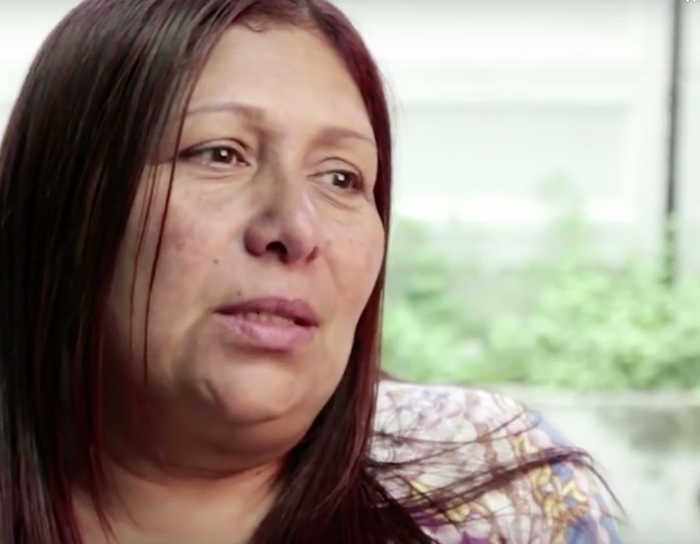Heart Failure hospitalization
A roadmap for carers
It looks like you are using an older version of Internet Explorer which is not supported. We advise that you update your browser to the latest version of Microsoft Edge, or consider using other browsers such as Chrome, Firefox or Safari.
A roadmap for carers
Sometimes, heart failure symptoms can worsen and the person you care for may need to be taken into hospital for treatment. Hospitalization can feel scary, but your support as their caregiver will help them through the process and it can even provide a good opportunity to help improve their care going forward.
It’s also important to remember that the road to recovery doesn’t end when your loved one exits through the hospital doors. Your help will be needed, especially in the days following their discharge from hospital. During this time, it’s very important to stay aware of symptoms, so you can actively help to avoid another hospital visit any time soon.
To help you navigate through this potentially difficult time, we’ve created a roadmap for carers:

During your loved one’s time in hospital, it’s a good idea to talk to the doctor to understand more about why they have been hospitalized. Is it because their condition is worsening or their heart is becoming more damaged? Is it because their current treatment isn’t working as it should and they need to change their management plan? What can be done to prevent future hospitalizations? It’s important to understand as much as you can about your loved one’s treatment plan while it is being decided in hospital. This will help you in caring for them as best as possible once they leave.
Hospitalization due to a heart failure event will likely provide an opportunity to review your loved one’s treatment plan as a whole. Take this time to share any broader health problems or information about other diagnosed conditions with the medical team, as this may impact the disease management plan developed.
Once you’re only a few days away from being able to bring them home, it’s important that you and the person you care for discuss a discharge plan with their doctor. This will provide you with clear guidance on how to best care for your loved one once they’ve left hospital.
Here are some questions you may want to ask the doctor:
We know that talking to doctors isn’t always easy, so we’ve created a handy guide full of useful tips to help ensure these conversations run smoothly.
Hospitalizations for heart failure usually last between five and 10 days, depending on a person’s condition; it’s always best to listen to the doctor’s recommendation when deciding the right time to leave. Once you know when your loved one will be returning home, it’s a good idea to start preparing for their arrival as early as possible. This could involve talking to friends, family and neighbors, to get a support network in place. Letting others know what’s going on and providing them with some information about your loved one’s treatment and care, means they will be able to provide help when you need them.
Practical preparations may also be necessary, such as setting up a bed for them downstairs, making sure the house is accessible for a wheelchair (if one is needed), sorting their transport home from hospital or organizing food deliveries. It could also mean talking to care staff at the hospital about getting additional support like nurse or occupational therapist visits. You may find it helpful to approach a local patient group to ask their guidance on getting the help you and your loved one need.
It’s discharge day – hooray! Before they leave the hospital, be sure to make sure you have clear dates for any follow up appointments. Depending on what the doctor recommends, these could be scheduled for a few days or a few weeks after leaving hospital. It’s also important to understand how best you can contact the care team – do they have a phone service or an internet portal with telemedicine?
If possible, ask for a discharge letter which can be given to their primary physician or any other doctor they may see following discharge, to provide them with all the updates they need.
Before you go, if there is anything at all you are still unclear about, now is the time to ask the doctor, nurse or specialist. Spend 10 minutes the night before making a list of questions to ensure there is nothing left off your list and thinking about all the things you might need to know before you bring them home.
Your loved one has made it home, but that doesn’t mean that their road to recovery is over. Ensure that you both monitor their symptoms, just as they were being monitored at the hospital. If you want a little extra help keeping track of their symptoms, why not use the symptom checker?
Remember, it’s important to look after yourself too. You can only take care of your loved one if you are taking care of yourself at the same time. Make use of your support network so that you can take a well-deserved break – that’s what they are there for!
As a carer, you will always play an important role in your loved one’s life with heart failure, through hospitalization and beyond. Once they are fully recovered from their trip to hospital, you can help empower them to continue looking after themselves and to take control of their heart failure.

In addition to medicines, your doctor may suggest lifestyle changes. Read here for tips.

Have you come across these common heart failure myths?

Watch videos of people managing life with heart failure. Read about lifestyle, diet, exercise, and more.